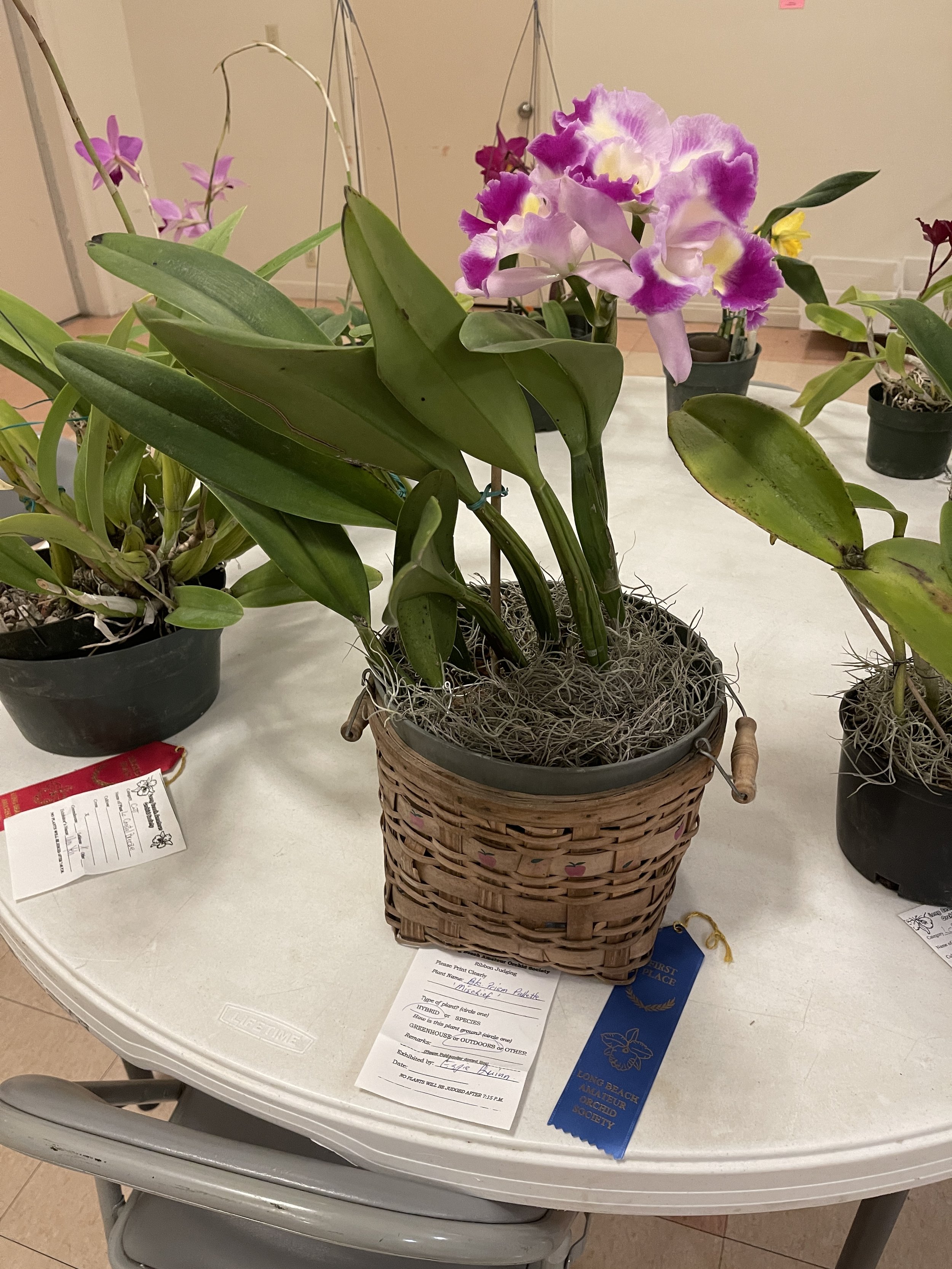Tim Culbertson, will be discussing Laelia anceps, a Treasure of Mexico.
Although Tim teaches middle school kids for a living, one of his passions has always been plants. He began growing orchids as an offshoot from working at Longwood Gardens in Philadelphia just after college. From the very beginning it was all about Paphs, particularly awarded and select clones of historic importance, of which his collection numbers nearly 3,000. While he loves finding old, rare stepping stones in Paph breeding, he also does a little hybridizing of his own, and growing up his own babies is a blast for him. He is an accredited judge with the American Orchid Society, and has served in various capacities with various orchid societies in California and on the East Coast. He loves meeting other people who like orchids too, and doing so often finds him traveling to shows, vendors, and peoples’ greenhouses to see the latest and greatest in new hybrids and to get the best orchid gossip. He likes to be involved in plants as much as possible. In addition to Longwood, he has worked at the Smithsonian Institution tending to their orchids, and for years he worked for the United States National Arboretum, collecting rare plants and documenting cultivated species and hybrids for their herbarium. In short, he really likes plants.
For our meeting, he will be sharing a presentation on Laelia anceps, a Treasure of Mexico. Although large, these spectacular cattleyas grow well outside in our subtropical climate, and with their myriad colors and free-blooming tendencies, these are great plants for every collection. California is a hot-bed of interest in Laelia anceps types and hybrids, and has been for years. We will explore its influence in hybrids, and how breeders have made combinations of naturally occurring forms to create entirely new strains of this lovely species. By the end of his presentation, you will have a new appreciation of the range of color forms of Laelia anceps and its hybrids, as well as an appreciation of their beautiful flowers and ease-of-growth.
Plant judging will be active that night so bring plants in no later than 6:45 if you want them judged. Plants arriving late will not be judged.










